Human Geography
Human geography is the study of the spatial patterns and processes that shape human societies. It focuses on understanding the relationship between people and their environment, as well as the ways in which people create and interact with places. Human geography encompasses a wide range of topics including population, migration, cultural landscapes, urbanization, and geopolitics.
Key Concepts
- Population: The study of population distribution, density, demographics, and population growth.
- Migration: The movement of people from one place to another, and the reasons behind such movements.
- Cultural Landscapes: The visible imprint of human activity and culture on the landscape.
- Urbanization: The study of cities and urban areas, including their growth, development, and impact on the environment.
- Geopolitics: The study of the relationship between politics and geography, particularly in relation to power and territory.
Study Guide
To understand human geography, it is important to explore the following topics:
- Population distribution and density
- Demographic transition model
- Push and pull factors of migration
- Types of migration (e.g., voluntary, forced, internal, international)
- Cultural landscapes and the impact of human activities on the environment
- Urbanization and the challenges of urban growth
- Geopolitical theories and international relations
Studying human geography provides valuable insights into the ways in which human societies are shaped by and interact with their environments. It helps us understand the complexities of global interconnectedness and the diverse cultural landscapes that make up our world.
.◂Social Studies Worksheets and Study Guides Kindergarten. Geography
Coloring Worksheet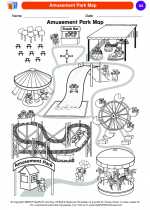 Amusement Park Map
Amusement Park Map  Coloring Worksheet
Coloring Worksheet Amusement Park Map
Amusement Park Map  Coloring Worksheet
Coloring Worksheet Community Map
Community Map  Coloring Worksheet
Coloring Worksheet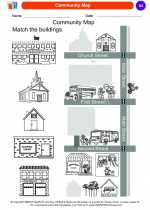 Community Map
Community Map  Coloring Worksheet
Coloring Worksheet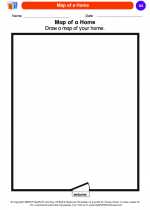 Map of a Home
Map of a Home  Coloring Worksheet
Coloring Worksheet Map of a Home
Map of a Home  Coloring Worksheet
Coloring Worksheet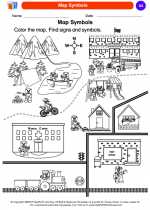 Map Symbols
Map Symbols  Coloring Worksheet
Coloring Worksheet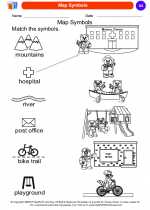 Map Symbols
Map Symbols  Coloring Worksheet
Coloring Worksheet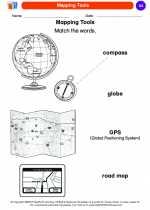 Mapping Tools
Mapping Tools  Coloring Worksheet
Coloring Worksheet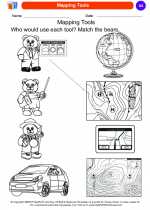 Mapping Tools
Mapping Tools  Coloring Worksheet
Coloring Worksheet School Map
School Map  Coloring Worksheet
Coloring Worksheet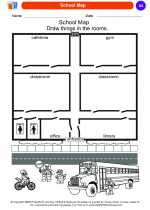 School Map
School Map  Coloring Worksheet
Coloring Worksheet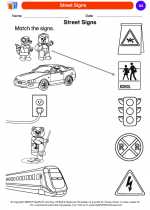 Street Signs
Street Signs  Coloring Worksheet
Coloring Worksheet Street Signs
Street Signs  Coloring Worksheet
Coloring Worksheet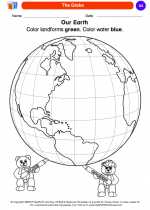 The Globe
The Globe  Coloring Worksheet
Coloring Worksheet The Globe
The Globe  Coloring Worksheet
Coloring Worksheet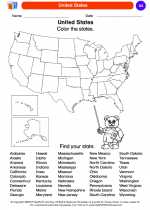 United States
United States  Coloring Worksheet
Coloring Worksheet United States
United States  Coloring Worksheet
Coloring Worksheet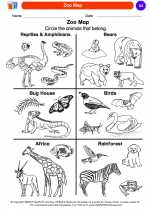 Zoo Map
Zoo Map  Coloring Worksheet
Coloring Worksheet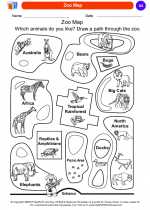 Zoo Map
Zoo Map 

 Coloring Worksheet
Coloring Worksheet
 Coloring Worksheet
Coloring Worksheet
 Coloring Worksheet
Coloring Worksheet
 Coloring Worksheet
Coloring Worksheet
 Coloring Worksheet
Coloring Worksheet
 Coloring Worksheet
Coloring Worksheet
 Coloring Worksheet
Coloring Worksheet
 Coloring Worksheet
Coloring Worksheet
 Coloring Worksheet
Coloring Worksheet
 Coloring Worksheet
Coloring Worksheet
 Coloring Worksheet
Coloring Worksheet
 Coloring Worksheet
Coloring Worksheet
 Coloring Worksheet
Coloring Worksheet
 Coloring Worksheet
Coloring Worksheet
 Coloring Worksheet
Coloring Worksheet
 Coloring Worksheet
Coloring Worksheet
 Coloring Worksheet
Coloring Worksheet
 Coloring Worksheet
Coloring Worksheet
 Coloring Worksheet
Coloring Worksheet

The resources above cover the following skills:
Social Studies, Kindergarten
Geography. The student understands the concept of location. The student is expected to:
Geography. The student understands physical and human characteristics of place. The student is expected to: